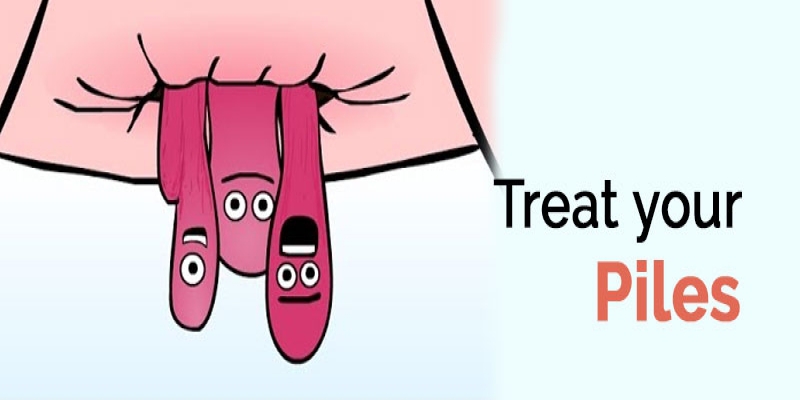What do You need to know about Piles?
2019-04-09 / RG STONE HOSPITAL / Piles

Haemorrhoids are vascular structures in the anal canal which help with stool control. In their physiological state they act as a cushion composed of arterio-venous channels and connective tissue that aid the passage of stool. They become pathological (piles) when swollen or inflamed. Piles are a very common ailment that may affect men or women at any age. Piles may be internal or external.
Family inheritance is also seen. Women are more susceptible to piles in pregnancy as the pressure from the growing uterus restricts the blood flow in the pelvis. Lifestyle factors also have a contributory effect.
What are the piles symptoms?
Symptoms include itching, irritation, pain, aching, bleeding, and tender outgrowth(s). When piles escalate to more serious conditions, the following symptoms are noticed:
- Infection
- Excessive bleeding from the anus, which might lead to anemia
- The inability of controlling bowel movements, also known as fecal incontinence
- An anal fistula may form due to cuts in the anal skin surface and the insides of the anus
- The occurrence of strangulated hemorrhoid, in which hemorrhoid’s blood supply is cut off, leading to complications including blood clot or infection.
What are the common causes of piles?
These are caused due to continuous high pressure in the veins. Other causes include constipation, excessive straining during bowel movements and persistent diarrhea.
How are piles diagnosed?
Diagnosis is done by history and physical examination of rectum.
What are the possible treatments for Piles?
In most of the cases, the piles get resolved completely on its own without the need for any treatment. Some of the possible treatments for piles have been mentioned below.
- Diet: A change in your diet can help to keep the stools soft and regular, and thus, not strain the anus. You can start eating more fibrous food, such as vegetables, fruits, or bran-based breakfast cereals. It is best to avoid tea and coffee and increase your water intake.
- Weight Loss: Losing weight will help in reducing the severity and incidence of piles. The doctors advise the patients to start exercising as one of the main therapies for this condition.
- Medications: If the diet and weight loss are not enough to arrest the condition, you will have to resort to medication. There are several over the counter medicines like ointments, painkillers, and creams available for treating piles. Corticosteroids help in reducing pain and inflammation. Doctors even suggest laxatives to help the stools pass easily without any pressure on the colon.
Prodedures of Piles Surgery :
Procedure for haemorrhoids is called ‘Minimally Invasive Procedure for Haemorrhoids’ (MIPH), also called ‘Stapler Haemorrhoidectomy’.
The technique uses a stapling device and takes advantage of the fact that pain-sensing nerve fibres are not present high up in the anal canal.
In this procedure, the mucosa above the dentate line (containing part of pile mass) is excised and stapled with the stapler gun, thereby taking care of bleeding and prolapse. The pile masses are compressed into a cup like cavity inside the stapler. When fired, the titanium staples cut and seal simultaneously, causing minimal bleeding.
As the cut line is above the nerves, there is less post-operative pain. Also, there is no incision on the perianal skin or lower part of anal canal and the wound in the anal mucosa is also primarily closed with a stapler, thus, there is no need to do any post-operative dressing.
In this procedure, the mucosa above the dentate line (containing part of pile mass) is excised and stapled with the stapler gun, thereby taking care of bleeding and prolapse. The pile masses are compressed into a cup like cavity inside the stapler. When fired, the titanium staples cut and seal simultaneously, causing minimal bleeding.
As the cut line is above the nerves, there is less post-operative pain. Also, there is no incision on the perianal skin or lower part of anal canal and the wound in the anal mucosa is also primarily closed with a stapler, thus, there is no need to do any post-operative dressing.
It is less painful and ensures early recovery.
Piles are a very treatable and common condition, and thus, there is nothing to worry about. With proper care and treatment, you will get back to good health in no time.
Categories
Hernia Repair
Appendicitis
Piles
Urological Treatment
Hernia treatment
Enlarged Prostate (BPH)
Gall Bladder Stone
Urinary / Kidney Stone
Vitamins
Indian Health Care System
Exercise
Obesity
Female Urinary Incontinence
Single Incision Laparoscopic Surgery (SILS)
Kidney Cancer
Bladder Cancer
Ovarian cancer
Nephrology
Bariatric Surgery
Kidney Function Test
Female Urology
Radiation Therapy
Alcoholic Fatty Liver
Liver disease
Gastroenterology
Kidney Disease
Nutrition & Health
Lung Cancer

